
Chef wear / Restaurants
-
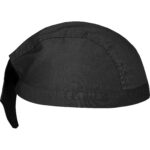
Chef Bandanna
R79,99 -
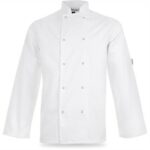
Chef Jacket Long Sleeve
R330,00 -
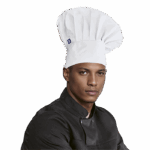
Chef Mushroom Hat
R119,99 -
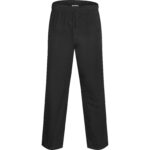
Chef Unisex Pants
R300,00 -
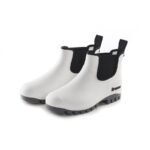
Dromex Chelsea Gumboot
R349,99 -
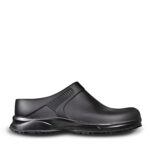
REBEL CRUIZA Executive Chef Shoe
R850,00
Exploring durable Chefwear
Picture a day-to-day life of a chef or any role in the kitchen, a role that could potentially lead to all types of injury. Physical safety must take importance, especially when it comes to attire. Chef wear has to create an essential barrier between the worker and the various hazards that will come with the culinary environment.
When it comes to this type of clothing, as one would imagine, it has to adhere to stringent regulatory standards to ensure the well-being of the user, wherever they may be. All kinds of Chef wear typically comply with established safety standards for heat resistance, cut resistance and overall durability.
With all the risks the kitchen work environment brings, each brings specific hazards to each, you have to determine the safety features your Chef wear has to feature.
The most common features include flame-resistant materials, which is essential for protection dealing with open flames or high heat. Conversely, roles that involve frequent use of knives and other sharp tools require garments featuring cut-resistant fabrics.
Besides protecting from the obvious hazards, one needs to remember that chef wear may require breathable materials for hot environments or additional insulation for cold storage areas.
Maintenance is important, especially when it comes to Chef wear, to ensure long use and maintain the protection you received one purchase.
Things to look out for:
- General wear and tear, thinning material, holes and deep creasing, all of which affect the protective properties of the item.
- Damage to any fastenings, buttons that do not work as intended, snaps or zippers that do not secure the garment adequately.
- Obvious contamination signs, persistent stains, odours or the presence of moisture indicates compromised hygiene standards.
- Neglecting these periodic checks greatly undermine the safety of the wearer.
Chef wear available from Simon Workwear offers features that not only ensure comfort during long shifts, but prevents stress as much as possible on the body overtime, essential features such as contoured fits, padded linings and flexible fabric.
To strike the perfect balance between the all-essential comfort and security features, attention is needed when it comes to material technology and innovation in the design of the attire.
Modern chef wear utilizes lightweight, durable fabrics that offer protection against cuts and heat while maintaining necessary resistance to wear and tear. Additionally, breathable fabrics and moisture-wicking linings are integrated to keep the wearer dry and at a comfortable temperature, reducing discomfort.
Picking up the right apron and any additional protective wear is vital for long-term safety and comfort. These are the attributes to be aware off:
- Ergonomical design: Aprons should fit the contours of the body as best they can.
- Heat resistance: Protection from hot liquids and open flames.
- Cut resistance: Reducing the risks of injuries from sharp tools.
- Breathable materials: Promoting proper hygiene and comfort.
- Anti-microbial properties: Helps combat odour and infection risks.
- Adjustable fit: Provides stability and prevents loose fabric from becoming a hazard.
By prioritizing these features, chef wear can offer the safety and comfort required in the demanding environment of a professional kitchen.

